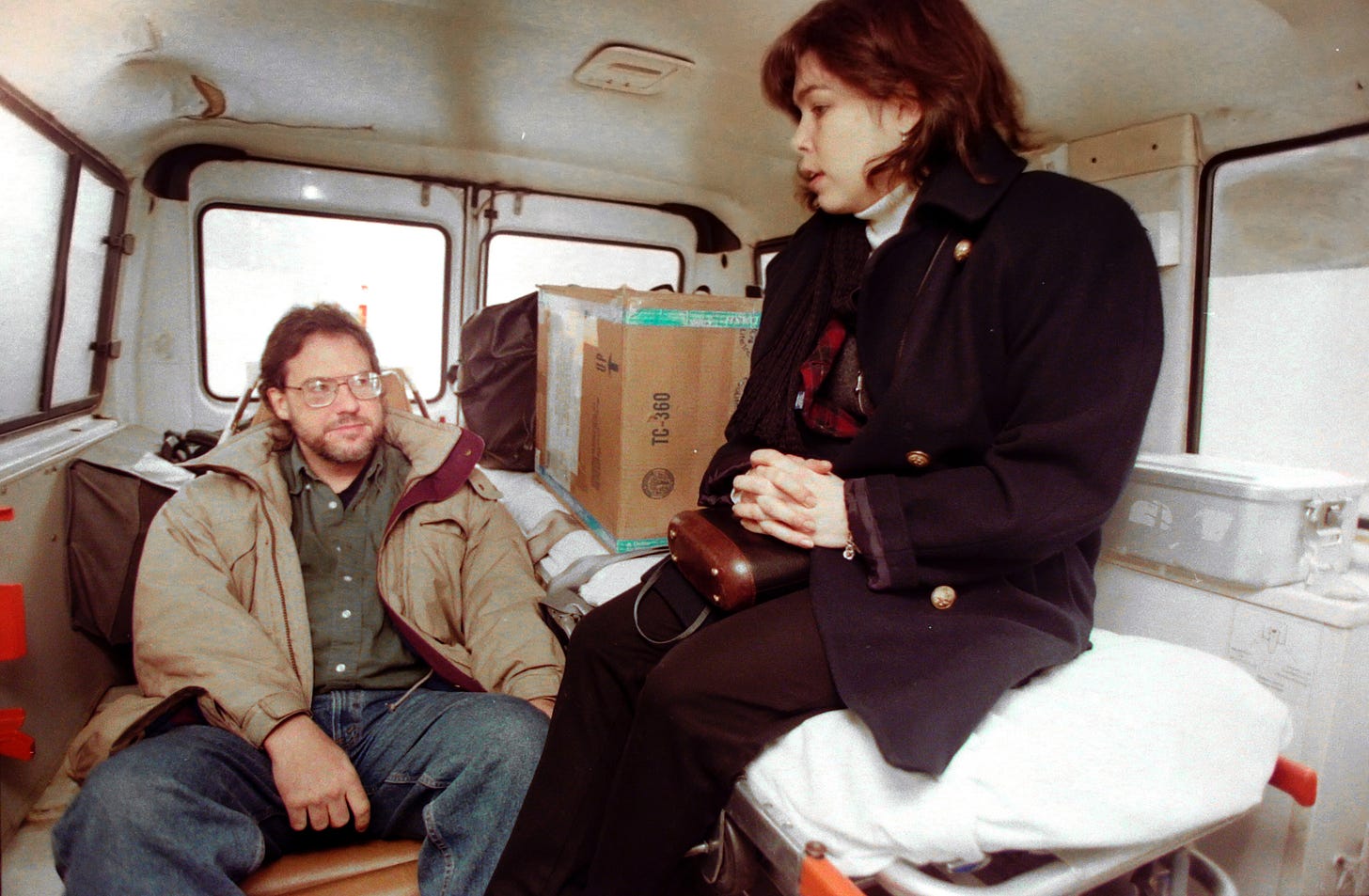Stepping back, but not finished.
A new way to think about retirement, from someone who's done it before.

My friend David is retiring at the end of this month, for the second time in his long and illustrious journalism career. This time, it’s really good-bye to full-time, daily journalism.
We’ve been talking about this day for quite a while. I was David’s editor back in the day when he was a columnist at the daily newspaper in Memphis, and we’ve been close friends ever since. He has adapted admirably to the ever-changing journalism ecosystem since he left the newspaper in 2019, but I can see why he’s tired of the grind of it all. As you’ve probably noticed, journalism has changed completely since the days when we sat down once a day to decide what to put in the paper. Reporters, especially, bear the brunt of the never-ending news cycle that’s the norm now.
The thing that made David hesitate about retiring, I think (besides not having a regular paycheck), is that he couldn’t really see what might come next. And retirement sounds so, well, final.

David loves what he does and is incredibly good at it. He has won major national awards (not that he’d ever tell you about them) and worked for a while at the Washington Post, but what he really loves is to get the chance to ask questions, pay attention and talk to regular people about their endlessly interesting lives. I think he was worried all that might go away.
But I don’t really think it will, which is why I’m so happy to see David making this announcement.
From his own post about his retirement:
I'm ready to notch down. Pay less attention to the daily firehose of news. Read less for work, more for pleasure. Attend fewer meetings. Meet fewer deadlines.
Work many fewer hours.
For those of us lucky enough to have a choice about when and how we do our work, the idea of retirement has changed completely. Trust David, the reporter, to articulate just how.
A few years ago, a Forbes magazine columnist wrote that our society needed a new word for retirement. He suggested the word retirements. Plural.
"By acknowledging the idea that each of us may have multiple retirements during our lifetime, the burden is removed from making this huge, one-time, make or break decision," wrote the retirements guru Robert Laura.
"This new mindset says, “What’s next?" Laura explained, "... and gives boomers permission to be proactive as they transition from one role or situation into the next."
Then David turned toward the future, as he almost always does.
I'm not sure when I'll retire again. I've still got some game.
The hundreds of friends and co-workers who have commented on David’s retirement Facebook post would certainly agree. In fact, those comments, taken together — from people who have already retired, people who’ve worked with David and those of us who hope he’ll never stop writing — point the way to a new way of thinking about retirement.
You keep asking questions. You take time to rest, watch baseball and think. You read. You listen. You read some more. There are probably more naps involved.
But you always keep writing.
As the luminous Joyce Carol Oates, who at 87 has written more than 60 novels as well as short stories, poetry, plays and children’s books, said recently:
“Writing is nothing that you retire from. It’s like dreaming. You wouldn’t retire from dreaming, right?”
Dream on, my friend. We are all waiting to read what comes next.





This is lovely, Leanne.
Beautiful.